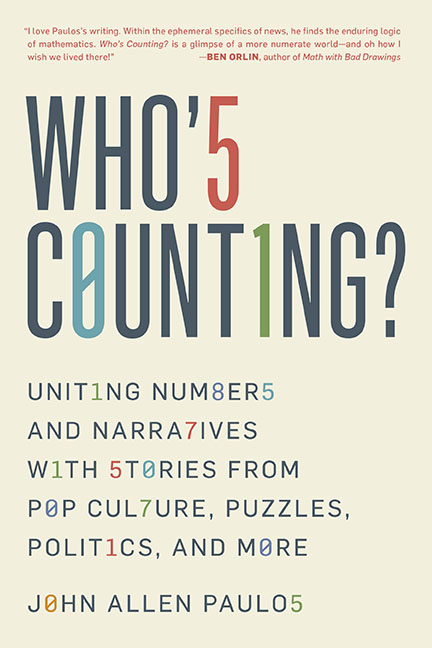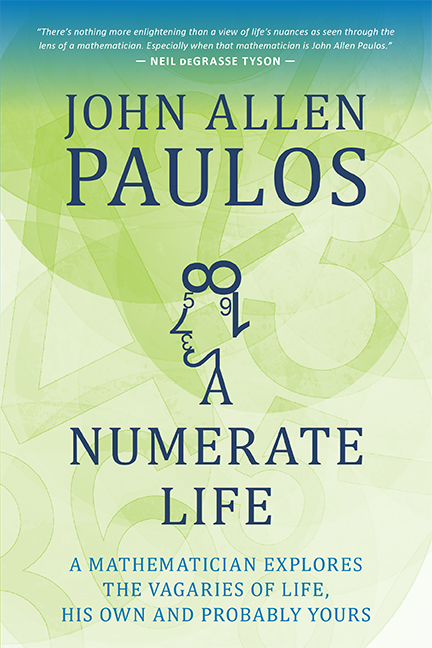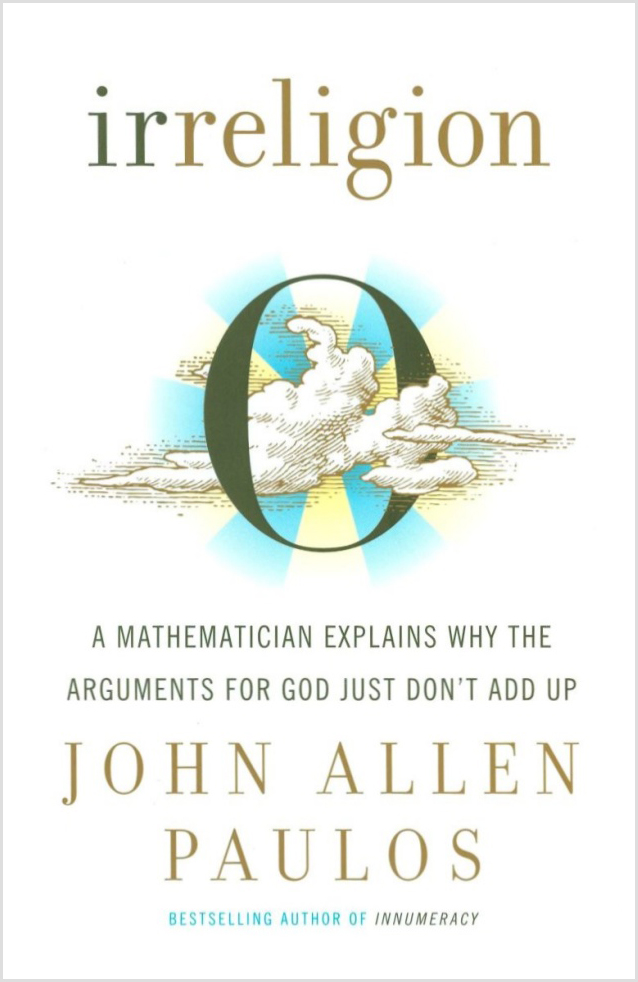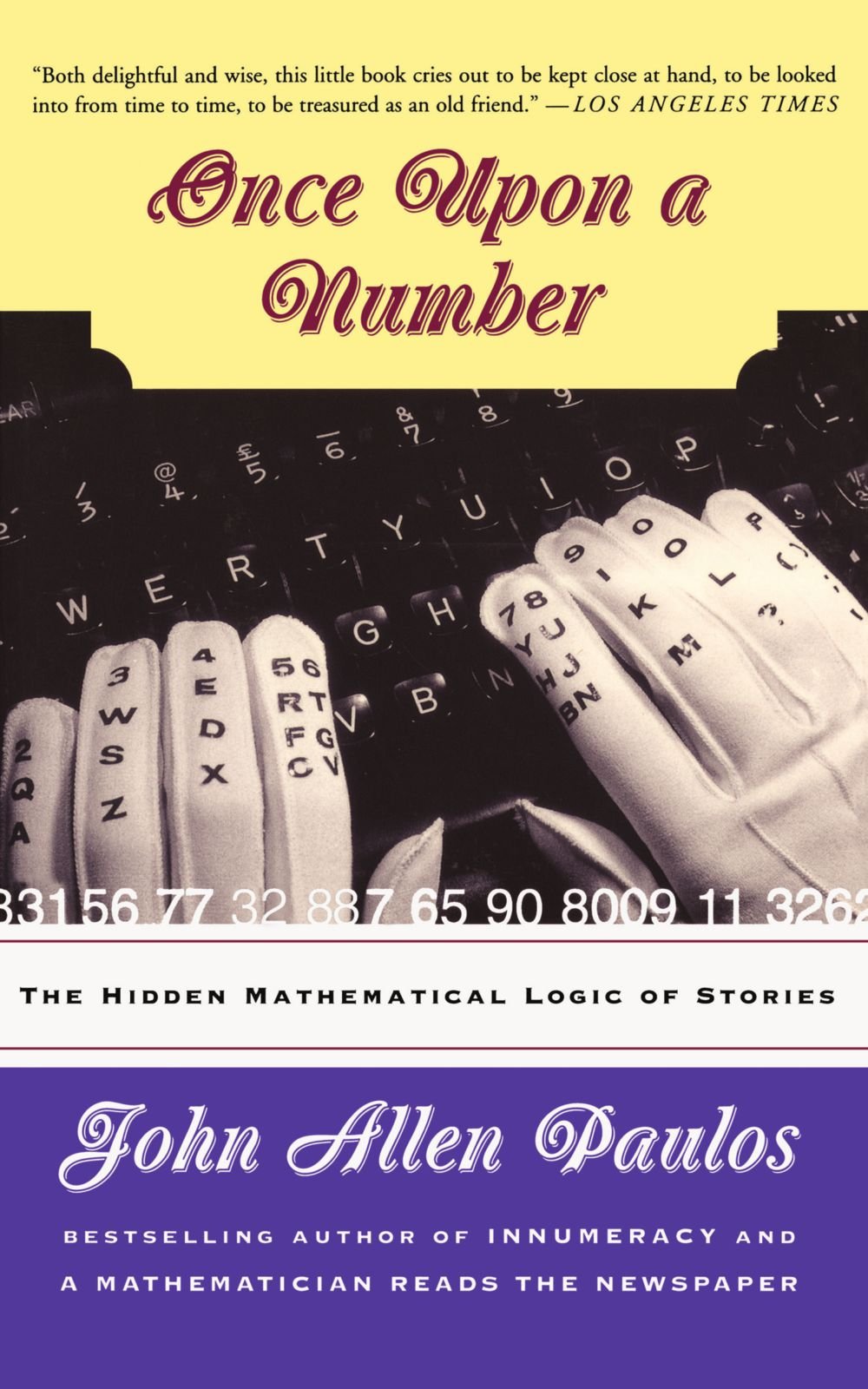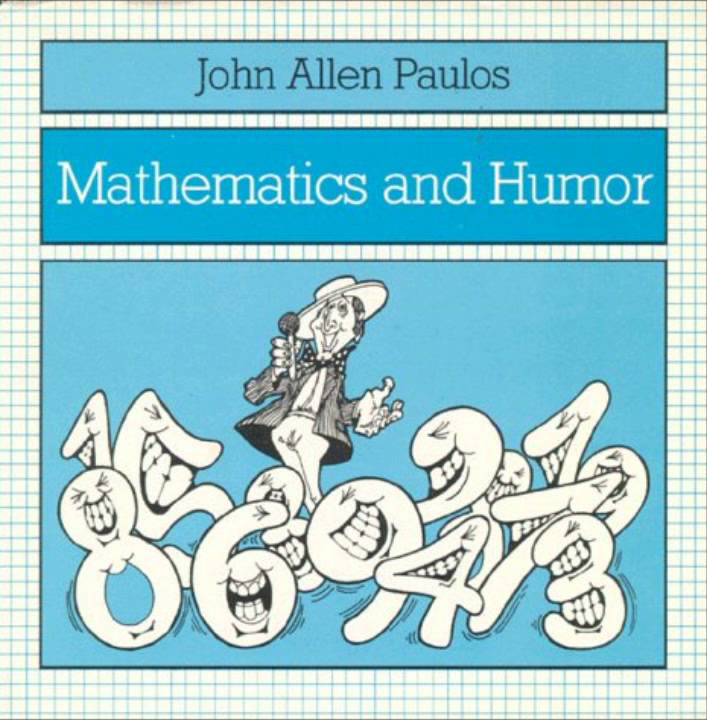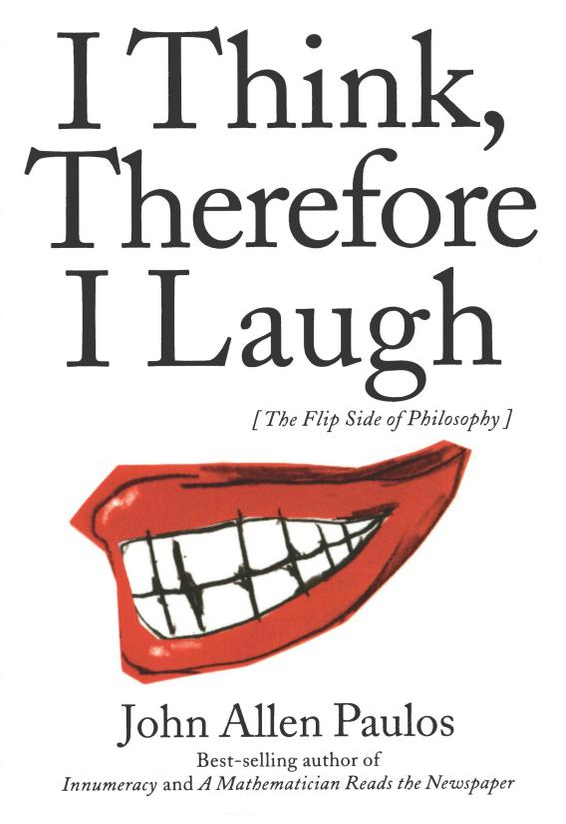Paulos - Brief Resume
(A more extensive, but also incomplete Curriculum Vitae is available here.
Much less clunky, less dated than below, and possessing much more narrative verve is my book, A Numerate Life.)

Bestselling author, mathematician, public speaker, and formerly a monthly columnist for ABCNews.com and occasionally for the Guardian and Scientific American, John Allen Paulos grew up in Chicago and Milwaukee and received his Ph.D. in mathematics from the University of Wisconsin. Now professor of mathematics at Temple University in Philadelphia, he is married and the father of two and grandfather of four.
In addition to being the author of a number of scholarly papers on mathematical logic (specifically model theory), probability, and the philosophy of science, Dr. Paulos has written Mathematics and Humor, I Think, Therefore I Laugh, Innumeracy - Mathematical Illiteracy and Its Consequences, Beyond Numeracy - Ruminations of a Numbers Man, A Mathematician Reads the Newspaper, Once Upon a Number, A Mathematician Plays the Stock Market, Irreligion, A Numerate Life, and now Who's Counting.
(Random pics to the left and below from Spain and Thailand)
The first two books were published by university presses in 1980 and 1985, respectively, and were quite well-received. Innumeracy was on the New York Times bestseller list for five months in 1989 and was very favorably reviewed and extensively discussed in the national media - on television (the MacNeil/Lehrer Show, the Today Show, the David Letterman Show), on radio (more than 100 interviews including the Larry King Show and NPR's Fresh Air), and in newspapers and periodicals from coast to coast.
Innumeracy was a selection of Book-of-the-Month Club and other book clubs and was translated into thirteen foreign languages. Beyond Numeracy was published in 1991 by Knopf/Random House. It too was widely and favorably reviewed, led to many media appearances, was selected by Book-of-the-Month Club, and was translated into half a dozen languages.
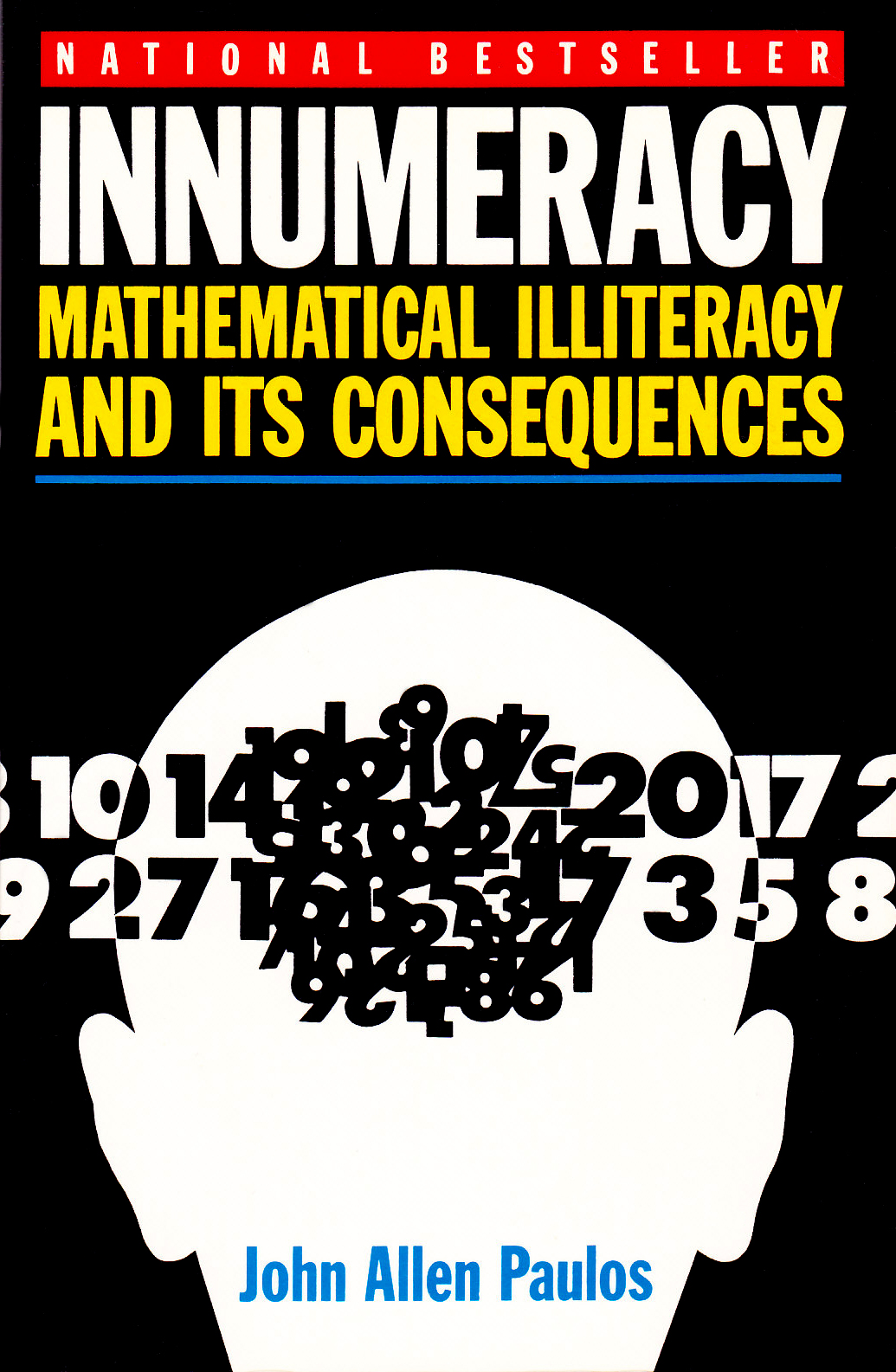

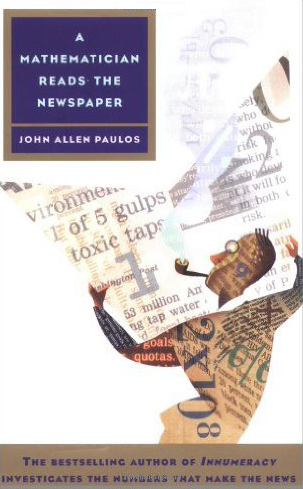
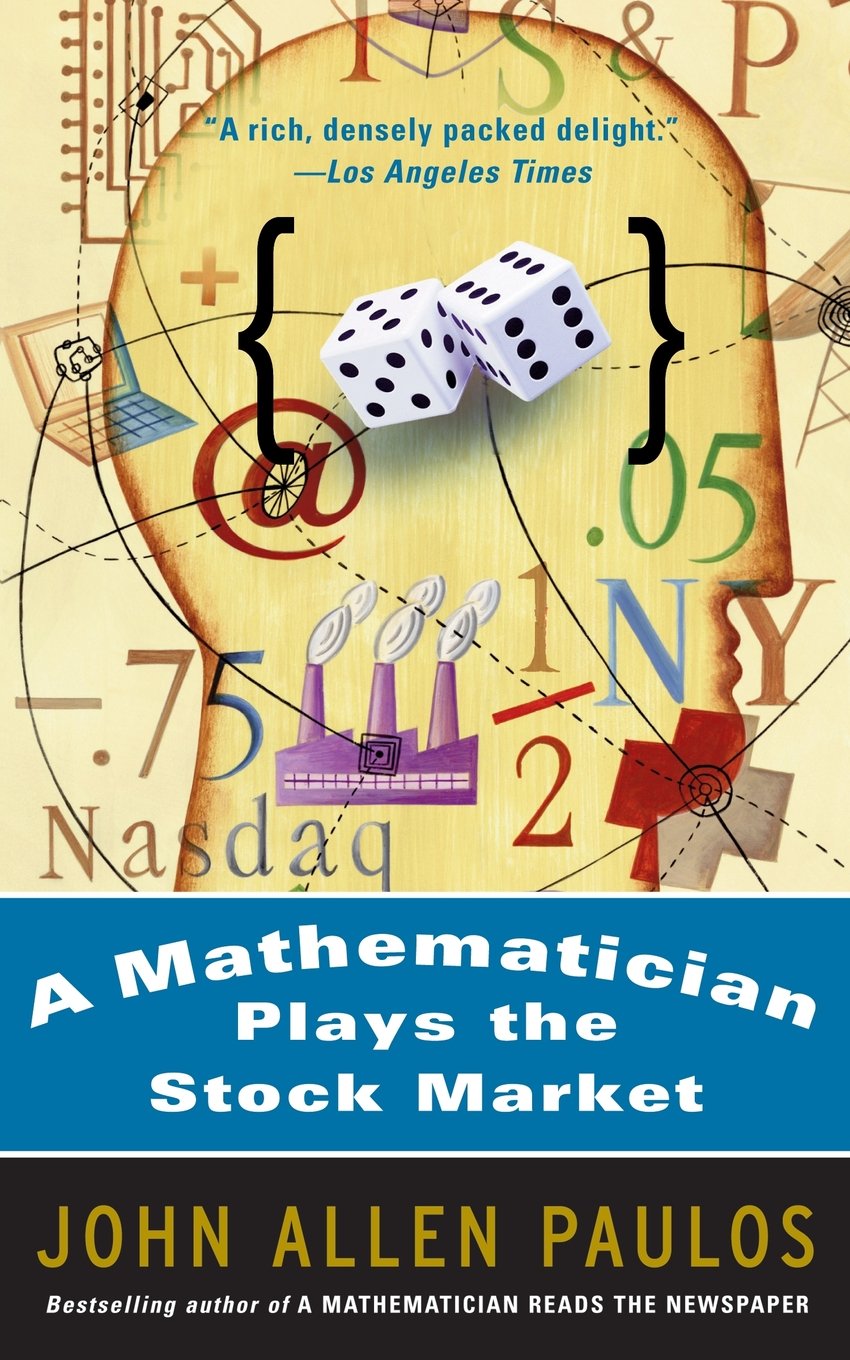
A Mathematician Reads the Newspaper, published in 1995, received very positive reviews in many newspapers and journals as well, made appearances on several bestsellers lists, including briefly a #1 showing on the fledgling Amazon, and was hailed by Random House readers in a poll of the best books of the century. (Paulos has declined to subject the poll to his usual withering scrutiny.) Once Upon a Number, published in 1998, was selected by the Los Angeles Times as one of the best nonfiction books of the year, and A Mathematician Plays the Stock Market also received glowing notices and made the Business Week bestsellers list. He has left perhaps cloying further encomiums and details to the Books and Reviews section.
A sampling of other writings and appearances include his Folio Ovation winning article "Dyscalculia" in Discover magazine, articles in a variety of prestigious periodicals on the mathematical aspects of stories on health, business, popular culture, finance, and the media, a discussion of Innumeracy in the American Math Monthly, a long article on education for the NY Times Book Review, reviews of dozens of books [ranging from biographies of Linus Pauling (New York Times), Paul Erdos, and John Nash (Los Angeles Times) to Hans Magnus Enzensberger's The Number Devil (New York Review of Books), Brian Butterworth's The Mathematical Brain (London Review of Books), Roger Penrose's The Road to Reality (Los Angeles Times), and Where Mathematics Comes From (The American Scholar) by Lakoff and Nunez], National Public Radio appearances on Talk of the Nation and Science Friday (three times), full feature interviews and profiles in several magazines, including People, Worth, and Omni (as well as the Chronicle of Higher Education), numerous appearances on public radio, CNN, C-Span, C-Span Book TV, and the like, a four-part BBC adaptation of A Mathematician Reads the Newspaper. He has also penned OpEds and articles online and in newspapers such as the Wall Street Journal, Los Angeles Times, and the New York Times on topics ranging from the Unabomber and the WTC attacks to a variety of more recent issues such as the size of the British Petroleum oil spill and the natural arising of complexity in economics and biology, many of them discussed in his ABCNews.com columns.
Most recently, he has written reviews in the New York Times of Infinitesimal - How a Dangerous Mathematical Theory Shaped the Modern World and The Theory That would Not Die (on Bayes theorem), a long piece in the New York Review of Books, Perfect Rigor: A Genius and the Mathematical Breakthrough of the Century (on Grigory Perelman and the Poincare conjecture), two articles in the New York Times Magazine on Metric Mania and Mammogram Math, a review of Nate Silver’s The Signal and the Noise in the Washington Post, an essay on the mathematics of romantic crushes, an Opionator piece, Statistics vs. Stories, and an OpEd asking why Americans don’t elect more scientists, all in the New York Times.
Paulos was also an adjunct professor of journalism at Columbia University, a Fellow of CSICOP/Skeptical Inquirer, and a member of the editorial board of the Philadelphia Daily News. As mentioned, he wrote the popular monthly "Who's Counting" column for ABCNews.com (archived) for more than a decade as well as occasional columns for The Guardian and Scientific American, where he explored the intersection of mathematics, popular culture, and topical news stories.
An active public speaker whose talks are both illuminating and humorous, Paulos has spoken to a wide array of audiences, including the Smithsonian (three times), Harvard's Niemann Journalism Fellows, Nicholas Applegate Investments, Goldman Sachs, the Trial Lawyers of America, NASA, the National Academy of Sciences, National Institutes of Health, the EPA, Dupont, Rohm and Haas, AT&T, many colleges and universities (including commencement assemblies at the University of Wisconsin and University of South Carolina), the Singapore Science Center, the Museum of Mathematics in New York, the Aspen Ideas Festival, and the James Randi skeptic conferences.
He is periodically called upon to be a talking head on matters mathematical, in particular during the 2000 election when he appeared on 20/20, the Lehrer News Hour, and NBC Nightly News and when his OpEds were cited by entities ranging from the New Yorker magazine to, unfortunately, the Chief Judge of the Florida Supreme Court. CNN commentator Jeff Greenfield even wrote that Paulos' comments on the election were the wisest uttered by any pundit. He also wrote a widely cited OpEd on the discrepancies between the exit polls and final tallies during the 2004 presidential election. Numerical anomalies and coincidences as well as polls and quantitative stories of all sorts very often still lead to media requests for comment and clarification.
Recent examples of Paulos' topical commentary include Mutual Knowledge, Common Knowledge and Joe Biden; Kurt Godel's Loophole, the Israeli Supreme Court, and Strange Loops; and The Vaccinated Are a Large Fraction of the Hospitalized: Not a Bad Thing.
In 2002 he received the University Creativity Award, in 2003 the Science Communication Award from the American Association for the Advancement of Science Award for promoting public understanding of science, and in 2013 the Mathematics Communication Award from the Joint Policy Board of Mathematics. He continues, often via his popular twitter account, to try mightily to straddle the chasm between Pulitzer and Pythagoras.

